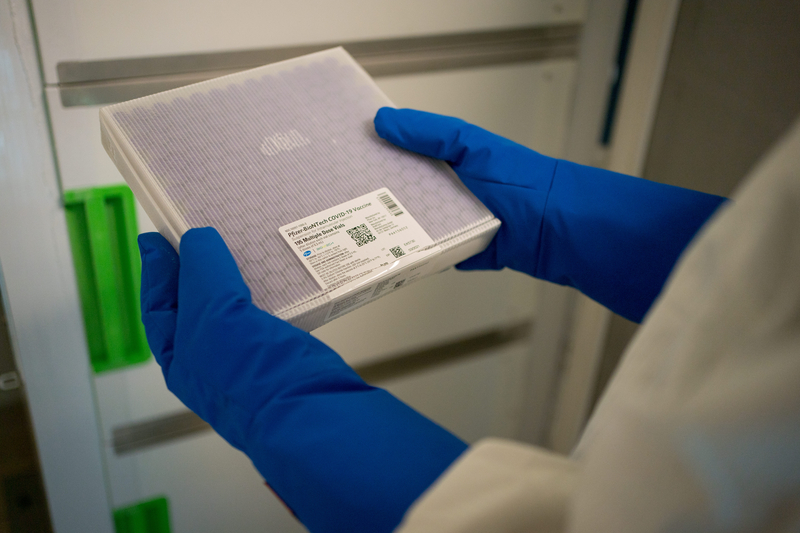
With social media spreading misinformation about COVID-19 vaccines around the world, innovative solutions will be critical to improving vaccine uptake. The Vaccine Confidence Fund is fighting fire with fire, supporting public health efforts that use social media to provide accurate and trustworthy information in a targeted, strategic fashion. Two IGHS-led projects are among those just funded by the fund as part of a push to determine how social media can be part of the solution to the problem of vaccine hesitancy.
The first project, led by IGHS researchers Nadia Diamond-Smith, PhD, Kelly Sanders MD, MS, Lucia Abascal-Miguel, MD, MS, and Kathryn Vosburg, MPH, seeks to address vaccine hesitancy in indigenous communities in Guatemala. A recent Guatemalan government/USAID study of vaccine acceptance found widespread fear of the COVID-19 vaccine among rural indigenous groups, driven by disinformation, inadequate health literacy and long-standing mistrust of government programs. Working with Wuqu’ Kawoq| Maya Health Alliance, researchers will develop and implement a social media campaign aimed at indigenous communities in select Guatemalan municipalities. The messaging will feature accurate scientific information presented in accordance with research on social and behavioral change. The team will evaluate which messages increased vaccine uptake and why with the aim of improving vaccination rates throughout Guatemala and beyond.
A second study, co-led by Diamond-Smith and Alison El Ayadi, ScD, MPH, will address low vaccination rates among pregnant and postpartum women in Northern India. Evidence from India and elsewhere shows that COVID-19 causes significant maternal mortality and morbidity as well as fetal and neonatal complications. The researchers will develop a social media bot to interact with users over WhatsApp, a hugely popular platform in India. The use of social media allows for rapid dissemination of accurate information, and the bot will tailor information to individual needs. The bot will interact with users belonging to a WhatsApp group facilitated by the Survival for Women and Children Foundation (SWACH), providing them with accurate scientific information on vaccines using health behaviour change science.
Project details
“Who to trust: combating COVID-19 vaccine misinformation through trusted messengers and social networks in indigenous communities in Guatemala.” PI: Nadia Diamond-Smith, PhD. Funded for $285,000. Collaborators not mentioned above include: Upswell and Stanford’s Digital Medic.
“WhatsApp Bots for Overcoming Vaccine Misinformation and Increasing Vaccine Confidence among Pregnant Women in Northern India: Development and Impact Assessment.” PIs: Nadia Diamond-Smith and Alison El Ayadi. Funded for $202,000. Collaborators not mentioned above include: Pushpendra Singh, PhD, at the Indraprastha Institute for Information Technology in Delhi, Mona Duggal, MD, at the Post Graduate Institute of Medical Education and Research in Chandigarh, and Vijay Kumar, MD, at the Survival for Women and Children Foundation (SWACH).